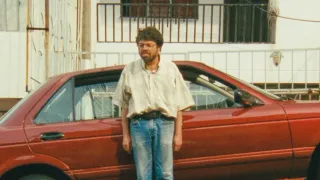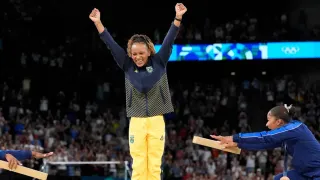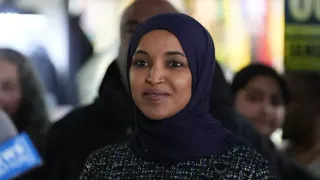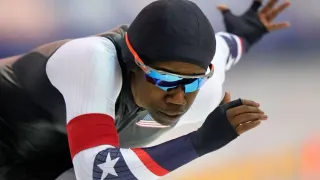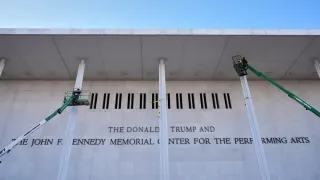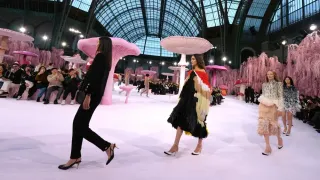March 25, 2017
MA Students Take Part in Queer SF Travel Class
Charlie Wagner READ TIME: 6 MIN.
At first blush, spending spring break studying queer San Francisco might seem a bit too much navel-gazing even for the average LGBTQ San Franciscan. But Sumi Colligan, Ph.D., professor of anthropology at the Massachusetts College of Liberal Arts, and her eight students just proved that assumption wrong.
The story started two years ago when Colligan, who identifies as queer, reflected on how "San Francisco has a reputation for queer identity" and realized that an academic course might explore that idea in greater depth. As the MCLA catalog notes, "[Colligan's] courses often incorporate queer content. She grew up in San Francisco, spent her formative years here, and has a passion for the city."
The result was "Travel 300: Queer San Francisco," the title of the three-credit class Colligan created and MCLA offered for the first time for the spring 2017 term. The class first met January 18 and the eight students and their professor then spent two months preparing for their March 11-18 visit to San Francisco.
Travel courses at MCLA require students to do extensive readings, prep work, and presentations. They are not like what most people would call a vacation, though the entire group stayed at the recently remodeled Beck's Motor Lodge, a longtime favorite of countless LGBTQ tourists. For Queer San Francisco, the students were also required to create a short video of some aspect of their visit and to keep a journal of all sites and speaker presentations.
Joe D'Alessandro, a gay man who's president and CEO of the San Francisco Travel Association, told the Bay Area Reporter that he was impressed with hearing about the class.
"San Francisco Travel aims to tell the San Francisco story around the world and queer stories are an important part of that mission," he said in a phone interview this week. "This is a way a class like this should be. Taking a class like this without visiting SF would be like taking a foreign language but never visiting the country of origin."
The San Francisco sites and speakers were selected to "explore contemporary queer identities, subcultures, and activism," Colligan wrote in the course description. Many of the students' evenings were free but Colligan planned daytime itineraries that kept the students busy.
On Sunday, the day after they arrived, the students and Colligan attended a matinee performance of Beach Blanket Babylon for fun and then visited Metropolitan Community Church-San Francisco for exposure to queer spirituality.
Monday they joined Don Romesburg, Ph.D., a gay man who's an associate professor of women's and gender studies at Sonoma State University, to explore North Beach, South of Market, and the Castro, and participate in a queer treasure hunt he designed. Then they visited the Lighthouse for the Blind in Civic Center and later listened to a presentation on the intersection of queer activism and disability rights by Corbett O'Toole and Karen Nakamura.
Tuesday, they toured the Women's Building and met with development director Tatjana Loh, then visited the GLBT Historical Society Archives and heard a special discussion of AIDS history. They moved next to Maitri hospice, which provides end-of-life care for people living with AIDS and was started by a gay Buddhist monk, and went to Cafe Flore to meet with Trinity Ordona, Ph.D., an instructor at City College of San Francisco who teaches classes on lesbian relationships and queer communities of color.
The group met in San Francisco with Sasha Buchert, staff attorney at the Oakland-based Transgender Law Center, and then went to the Tenderloin to visit St. James Infirmary, a peer-based occupational health and safety clinic for sex workers and their families. That evening, they attended a new play produced by Theater Rhino at the Eureka Theatre, "Flim-Flam."
On Thursday morning, they met at Cafe Flore with transgender historian Susan Stryker, co-producer of "Screaming Queens," a documentary about San Francisco's Compton Cafeteria riots in 1966. Next they toured the GLBT History Museum in the Castro and then attended a StoryCorps intergenerational dialogue with LGBTQ seniors at Openhouse, an organization serving LGBT seniors on Laguna Street. After dinner, the whole group went to the Harvey Milk Center for the Arts for two hours of queer square dancing.
Telling Stories
Immediately after the StoryCorps event, several of the students and one of the StoryCorps participants agreed to talk about their experience with the StoryCorps process and the Queer San Francisco course.
Matty Blair is a senior with a major in sociology and a minor in anthropology and is from a rural part of New York, just over the state border from MCLA. The college itself is located in the town of North Adams, population 13,708, in the Berkshires region of western Massachusetts.
Blair's most vivid memories of the week were from the visits to the St. James Infirmary and the Lighthouse for the Blind where "they talked about the intersection between LGBT issues and disability."
"The medical industry can be judgmental and the people we met at the St. James Infirmary were very inspiring," Blair, a straight ally, added. She was thrilled "to meet people who are activists through and through."
Dee Davis is a sophomore from Boston and a sociology major. Davis, who identifies as pansexual, said that for her, going to college in North Adams was her first time living in what she described as a rural community.
"I grew up in a multi-cultural, urban environment and did not have to deal with racism and homophobia," she said, "and my mother has always been proud of my acceptance of all people."
She said that she was excited to read Colligan's assigned and recommended lists and then see "the people they were talking about."
After her visit to the MCC-SF, Davis observed that San Franciscans seem less casual and less accepting about religious beliefs but she was happy to recall the surge of optimism she felt after visiting the St. James Infirmary.
Kenny Rivera is a sophomore and social justice major and quickly pointed out that he had never been beyond the East Coast. Rivera called himself "first generation" since both of his parents were born in Puerto Rico, and said he came out as gay in eighth grade. His mother works with domestic violence victims so he was also impressed with St. James Infirmary.
He said that he liked the different stories during the StoryCorps sessions. He hopes to move to San Francisco after graduation because, as he explained, "The second I was in San Francisco, I felt comfortable and at home."
The mission of the StoryCorps project is to "preserve and share humanity's stories in order to build connections between people and create a more just and compassionate world." Founded in 2003, StoryCorps does not have a specifically LGBTQ focus but one of its core principles is "a relentless focus on serving a wide diversity of participants." The stories are recorded in an audio-only format and there is an option for participants to release their recording to be stored in the Library of Congress. If people the students talked with choose that option, Colligan's students will assist in indexing the recorded stories and will write a short description of each.
Sheppard Kominars, Ph.D., was a participant in StoryCorps and was paired with Rivera. Kominars, a gay man, had been seriously injured in 1976 and the impact on his career and life was severe and permanent. The continual pain necessitated strong prescription drugs and eventually led to alcohol abuse. And years after the accident, he was forced to endure homophobia while he was dean at City College of Chicago in the early 1980s, even though he had been invited to prepare a program on diversity.
In recovery since the mid-1980s, Kominars, 85, described how he met his current partner in 1985 at a San Francisco sobriety convention. He said he was pleased with his first StoryCorps experience and his interaction with Rivera, to whom Kominars read two of his poems.
"If you're open-minded, you cannot come to San Francisco without experiencing the energizing effect," Kominars said. "There's a kind of breeze which flows through the streets."
The final day of the travel class was Friday, March 17. Colligan and her students started by taking BART to Oakland to meet transgender writer and health consultant Willy Wilkerson, MPH, for a discussion of transgender issues and Wilkerson's memoir, "Born on the Edge of Race and Gender: A Voice for Cultural Competency," one of the course's required texts. As a final event, the group went to Berkeley to meet a high school and junior high LGBTQ youth group at the Pacific Center for Human Growth.
"It was an interesting juxtaposition to meet with the seniors in SF on Thursday and queer junior high and high school students in Berkeley on Friday," Colligan said. "My students learned from the older generation one afternoon and were able to transmit their own wisdom and experience to an even younger generation the next afternoon."
